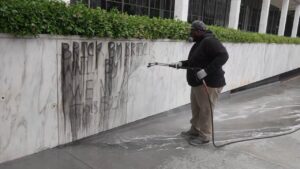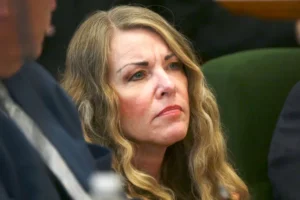MPD Chief and Hennepin County Sheriff Address Fallout from Federal Raid on Minneapolis Restaurant

Minneapolis Police Chief Brian O’Hara and Hennepin County Sheriff Dawanna Witt addressed growing public concern and outrage following a controversial federal raid on a Lake Street restaurant earlier this week. The operation, which resulted in a significant show of force and the detention of several individuals, triggered protests and reignited tensions around federal and local law enforcement collaboration—particularly in immigrant communities.

The Raid and Immediate Public Reaction
On Tuesday, June 3, federal agents from Homeland Security Investigations (HSI), the FBI, and the Drug Enforcement Administration (DEA) descended on Taqueria y Birrieria Las Cuatro Milpas, a small, well-known restaurant at East Lake Street and Bloomington Avenue in South Minneapolis. Witnesses described the scene as “militarized,” with agents arriving in tactical gear, accompanied by armored vehicles and weapons drawn.
While federal authorities later stated the operation was part of a long-running investigation into drug trafficking and money laundering connected to a transnational criminal enterprise, the raid quickly drew widespread community attention for another reason. Many local residents believed the action was immigration-related, sparking a rapid response from immigrant advocacy groups and Minneapolis residents. Within hours, protestors began to gather outside the restaurant, demanding transparency and condemning what they saw as a clear case of over-policing in a vulnerable community.
Response from Law Enforcement Leaders
In a joint press conference held the following day, MPD Chief Brian O’Hara made it clear that his department had no prior knowledge of the federal raid.
“We were not informed in advance, and that’s unacceptable,” O’Hara said. “When a highly visible federal operation happens in the heart of our city, with this level of intensity, and it catches our own officers off guard—it breeds distrust. We were only contacted to assist with crowd control once public demonstrations had begun.”
Chief O’Hara acknowledged the emotional toll such operations can have, especially on immigrant and BIPOC communities. “We cannot ignore the optics. We cannot ignore the trauma,” he said. “The city has worked hard to distance local policing from immigration enforcement because of that trauma. That progress was disrupted by this operation.”
Hennepin County Sheriff Dawanna Witt took a similarly critical tone toward the federal agencies, while confirming that her department had participated in aspects of the operation.
“There was no immigration enforcement component to our role,” Witt clarified. “Our deputies supported the criminal investigative portion, but the way this was carried out — the timing, the force, the lack of local communication — it all felt like overzealous showmanship. And it put my deputies in a difficult position with the community they serve.”
Witt stressed the need for greater coordination between federal and local law enforcement, emphasizing that operations of this magnitude should never blindside municipal leaders.
Political and Community Fallout
Mayor Jacob Frey also weighed in, urging federal partners to better coordinate with city officials in the future. He reminded the public that Minneapolis’ “separation ordinance” remains firmly in place—this ordinance restricts city agencies from cooperating with federal immigration enforcement unless required by law.
“We have made a commitment to protect our immigrant communities,” Frey said. “Minneapolis is not a place where we allow federal agencies to use fear tactics on our watch, especially without transparency.”
City Council members expressed deep frustration, particularly with the lack of communication between federal and local authorities. Council President Elliott Payne suggested that the city may consider expanding the separation ordinance to impose stricter rules regarding federal collaboration.
“This kind of disruption erodes trust,” Payne said. “We have to take a hard look at how we can prevent this from happening again—both legally and structurally.”
Community Reactions and Protests
Protests continued into the evening on June 4, with demonstrators calling for accountability and protection for immigrant-owned businesses. Several local advocacy groups, including the Minnesota Immigrant Rights Action Committee and Unidos MN, demanded that both local and federal officials release all documentation related to the raid, including the warrants and any immigration-related detentions.
Community members expressed fear that raids like this would discourage undocumented residents from seeking help or reporting crimes. “This isn’t just about one restaurant,” said Marta Rodríguez, a Lake Street resident. “It’s about the message it sends to all of us—especially families who fled violence and now fear being treated like criminals.”
Ongoing Investigations and Calls for Oversight
As of June 5, no names have been released by federal authorities regarding arrests, though law enforcement sources have confirmed that multiple individuals are in custody. Federal officials have not commented on whether any charges have been filed or if additional raids are planned.
Civil rights attorneys are now calling for independent oversight into the incident, arguing that such operations require civilian review given their impact on the public.
In closing remarks, both Chief O’Hara and Sheriff Witt committed to strengthening communication protocols and rebuilding community trust. “We can’t change how this happened,” Witt said, “but we can absolutely change how we respond going forward.”








